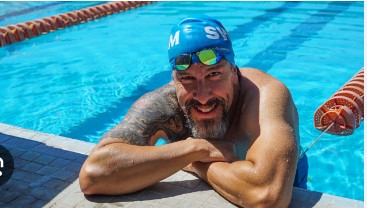Unveiling the Path to Gold: A Comprehensive Guide to Winning in Swimming
Swimming is not just a sport; it’s a journey of self-discovery, discipline, and determination. From the first tentative strokes to the exhilaration of racing against the clock, every moment in the water is an opportunity to push boundaries and strive for excellence.
For beginners, the thought of winning a gold medal may seem like a distant dream, but with the right guidance and dedication, it’s a goal that’s within reach. This comprehensive guide is designed to take aspiring swimmers on a transformative journey, from mastering the basics to competing at the highest levels.
Whether you’re dipping your toes into the water for the first time or looking to elevate your performance to championship levels, this guide will provide the detailed insights and practical strategies you need to succeed. So, let’s jump in, embrace the challenge, and unlock the potential that lies within each stroke.
1. *Water Comfort*: Spend time getting accustomed to the water. Practice floating on your front and back, submerging your face, and gradually progress to deeper water.
2. *Stroke Technique*:
– *Freestyle*: Focus on rotating your body while maintaining a straight line, kicking from your hips, and reaching forward with each stroke. Breathe to the side, keeping your head low.
– *Backstroke*: Keep your body position flat with a slight arch in your lower back. Use a flutter kick and alternating arm strokes, keeping one arm extended while the other pulls through the water.
– *Breaststroke*: Start with a frog kick, bringing your heels towards your buttocks and then kicking outwards. Pull your arms in a circular motion, keeping your hands close to your chest.
– *Butterfly*: Coordinate an undulating dolphin kick with an over-the-water recovery of your arms. Keep your body position undulating smoothly, and maintain a strong kick throughout.
3. *Breathing Technique*: Practice bilateral breathing (breathing on both sides) for freestyle to maintain balance and symmetry. Time your breaths with your strokes to avoid disrupting your rhythm.
4. *Endurance Training*: Gradually increase your swim distance and intensity over time. Incorporate interval training, where you alternate between high-intensity and recovery periods, to build cardiovascular fitness.
5. *Strength Training*: Include exercises like squats, lunges, pull-ups, and shoulder presses to strengthen muscles used in swimming. Resistance training with bands or weights can improve power and speed.
6. *Competition Preparation*: Familiarize yourself with competition rules and formats. Practice race-specific strategies, such as pacing and turns, during training sessions.
7. *Goal Setting and Tracking*: Set both short-term and long-term goals, such as achieving a specific time or improving technique. Track your progress regularly to stay motivated and adjust your training as needed.
8. *Coaching and Feedback*: Work with a qualified swim coach who can provide technical guidance, analyze your strokes, and offer personalized feedback to help you improve.
9. *Nutrition and Hydration*: Eat a balanced diet rich in carbohydrates, protein, and healthy fats to fuel your workouts and aid recovery. Stay hydrated before, during, and after swimming sessions.
10. *Rest and Recovery*: Schedule rest days into your training plan to allow your muscles to repair and rebuild. Incorporate activities like stretching, foam rolling, and massage to enhance recovery.
11. *Visualization and Mental Training*: Use imagery and positive self-talk to mentally rehearse races and overcome challenges. Practice relaxation techniques, such as deep breathing and mindfulness, to manage pre-race nerves.
12. *Consistency and Patience*: Understand that progress takes time and consistency. Trust in your training process, stay patient, and remain committed to your goals, even when faced with setbacks.
By focusing on each of these detailed aspects and consistently applying them in your training, you’ll be better equipped to pursue a gold medal in swimming.



